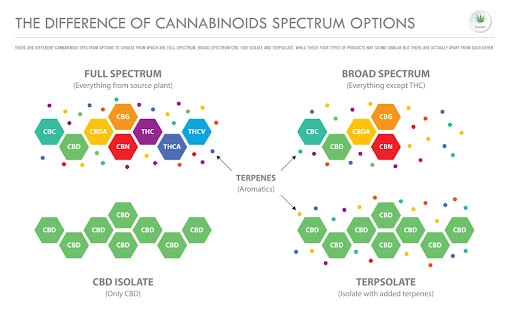How Hidden Inflammation Fuels Cancer, Heart Disease, & More:The Shocking Cellular Truth About Chronic Disease
Inflammation at the cellular level is the root cause of almost ALL chronic diseases. According to Dr. Keith Nemec, the director of Total Health Institute, a medical facility in Chicago, “all disease starts with cellular inflammation.”
Beyond Red & Swollen: What is Inflammation?
When we think of inflammation, we think of red, hot, and swollen skin. Inflammation is the body’s natural response to infection, irritation, or injury. Inflammation can occur throughout the body without any noticeable symptoms. The purpose of inflammation is to protect the body by removing harmful stimuli and promoting healing.

Diseases Start With Chronic Inflammation: What You Can Do About It
Whether you have cancer, heart disease, diabetes, digestive disorders, autoimmune disease, or Alzheimer’s, it all starts with inflammation at the cellular level, which leads to either early cell death translating into specific organ or gland disease or cancer stem cell stimulation, which fuels cancer cell growth and metastasis.”
The good news is that there are anti-inflammatory foods we will detail in this article, as well as other natural medicines like cannabis, that can help reduce inflammation at the cellular level.
Chronic Inflammation: Understanding the Root Cause of Autoimmune Diseases
Inflammation helps the body fight off illness by recruiting white blood cells, such as macrophages and lymphocytes, into inflammation signal production (cytokine release). This process can go wrong when it becomes chronic— cytokines are released from inflamed tissues without any resolution of what caused them in order that they may recruit more immune cell types onto themselves, leading to potential autoimmune disease conditions spreading throughout our bodies and cause damage in places not yet infected.
Stop the Silent Suffering: Diagnose and Treat Chronic Inflammation Before it's Too Late
Chronic inflammation can occur when the body is constantly in a state of low-grade inflammation. This can lead to a variety of chronic diseases such as heart disease, dysmenorrhea, cancer, and Alzheimer’s disease.
Acute vs. Chronic Inflammation: Friend or Foe? Understanding the Body's Two-Faced Response
- Acute inflammation: the short-term response to an injury or infection. This type of inflammation is characterized by redness, swelling, and pain. 2.
- Chronic Inflammation: occurs when the body is in a state of long-term, low-grade inflammation. This type of inflammation does not have noticeable symptoms but can lead to numerous chronic diseases over time.

Can Cannabis Conquer Chronic Pain? Anti-Inflammatory Powerhouse Explained
Cannabis can be a helpful tool for managing chronic inflammation because of its ability to regulate pain perception and immune responses through the activation of CB1 receptors on cells within the body as well as non-immune ones. The endocannabinoid system (ECS) can be activated by using cannabis, which then works together with other cannabinoids found in the plant to reduce swelling or discomfort associated with pain.
How Does Medical Marijuana Help Manage Your Chronic Condition?
THC Helps Fight Inflammation: The Mechanisms of Action
- Endocannabinoid system (ECS) activation: THC interacts with receptors in the ECS, a network of receptors and molecules involved in regulating various bodily functions, including inflammation. This interaction can potentially suppress the release of pro-inflammatory molecules, reduce the activity of immune cells, and promote cell survival.
- Apoptosis (programmed cell death): THC can induce apoptosis in certain immune cells involved in inflammation, leading to their removal and reduced inflammatory response.
- Cytokine suppression: Cytokines are signaling molecules that contribute to inflammation. THC might suppress the production of specific cytokines, thereby dampening the inflammatory cascade.
- T-regulatory cell (Treg) activation: Tregs are immune cells that suppress other immune cells and inflammation. THC may promote the activity of Tregs, leading to a more balanced immune response.
Evidence and limitations:
- Preclinical studies: Research in mice and other models shows THC’s potential to reduce inflammation in various conditions like arthritis, inflammatory bowel disease, and neuroinflammation.
- Clinical studies: While some clinical trials have shown promising results for THC in managing pain and symptoms associated with inflammatory conditions, evidence for its effectiveness in reducing inflammation itself is still limited and often mixed.
- Dosing and delivery: The effects of THC on inflammation are likely dose-dependent, and the optimal delivery method (e.g., inhalation, oral) remains unclear.
- Psychoactive effects: THC’s psychoactive effects can be undesirable in some patients, limiting its potential for widespread use in managing inflammation.
MAPS Study: Unveiling the Anti-Inflammatory Secrets of Cannabis & Extracts
Cannabinoids are not only antioxidants, but they also have powerful anti-inflammatory effects. They work through the induction of apoptosis, cell growth regulation, and cytokine production by T cells in order to provide relief from chronic pain or inflammation-related symptoms such as arthritis.
MAPS researchers have found that cannabis and its extracts affect a wide range of biological activities, showing that these compounds can improve certain conditions such as pain, inflammation, or nausea or vomiting, but the exact mechanism by which they work is still being studied.

CBD as Nature's Painkiller: Fighting Inflammation & Chronic Pain from IBD to Cancer
Research has shown that Cannabidiol (CBD) can target free radicals and reduce inflammation in the body. It’s been proven to help with inflammatory bowel diseases (IBD), Parkinson’s Disease, Alzheimer’s Syndrome among other chronic conditions causing or associated with chronic pain. CBD has been shown to break apart various types of immune cells responsible for governing our bodies’ response towards illness thereby preventing them from becoming damaged.
The body can have inflammatory responses which causes diseases like cancer, but CBD can help fight it by reducing tumor growth and promoting anti-inflammatory responses in the body to prevent future health problems.
People are always looking for new ways to treat diabetes symptoms like pain or discomfort from a lack of nerve cells and various cannabinoids like CBD may help.
Skin Test Shocks: Cannabis Extracts Show Anti-inflammatory Power, Potentially Taming COVID Severity
In a study conducted by Pathway Research Inc., the University of Calgary, and Lethbridge scientists used an artificial human skin tissue model to test how different cannabis strains would affect inflammation. They exposed it to UV rays which caused “induced” glowing in various areas on its surface when treated with seven popular varieties, including modern-day favorite cannabis strains like ACDC and northern lights.
The study found that cannabis may be able to “tame” or reduce the severity of Covid-19. One main cause for severe cases like ARDS is an influx in pro-inflammatory cytokines which can lead to cytokine storm pathogenesis, but treatment including marijuana extracts from the plant helped to curb inflammation and prevent fibrosis – resulting in remission!

Opioid Alternative? Study Highlights CBGA's Potential for Inflammation & Pain Management
A study published in the Journal of Experimental Medicine on Cannabigerolic Acid (CBGA) has been shown to decrease inflammation and pain while being free from many side effects associated with other medications, which is one of the biggest reasons people turn to cannabis for its pain-relieving properties.
This means that it may be an important ingredient for future anti-inflammatory treatments without relying heavily on steroids or opioids, which can have dangerous consequences when taken incorrectly.” The Centers for Disease Control and Prevention (CDC) website reflects that opioid deaths increased from approximately 70,029 in 2020 to 80,816 in 2021.
CBD for Pain and Neuropathy:Soothe the Pain, Heal the Body
CBD’s emerging role in chronic disease management is a result of cannabinoids triggering immunosuppression. The body has an incredible ability to heal itself, but sometimes inflammation causes problems. CBD is showing promise as a treatment for diabetes and cancer because it can reduce the pain associated with these conditions while also reducing their negative side effects, like neuropathy. There is a lot of research ongoing as this has been a major area of interest; however, we do know enough now to recognize its potential benefits against some serious illnesses.


Natural Arthritis Pain Relief: Can Medical Marijuana Stop Joint Damage?
The endocannabinoid system is a major player in our body’s fight against inflammation. Medical marijuana uses this physiological process as its mechanism of action, which aids chronic conditions like arthritis by breaking down proteins in joints, causing damage over time. One study showed that blocking the progression of joint pain with an agonist drug called AM6519 was possible through activation of the ECS via CB1 receptors on T cells, which migrate into inflamed joints.
Live Your Best Life: Anti-Inflammatory Foods for Optimal Health & Wellness
Adding anti-inflammatory foods to your diet can reduce inflammation, improve your overall health, and reduce your risk of chronic disease.
10 Scientifically-backed Anti-Inflammatory Foods You MUST Add to Your Diet
Rich in omega-3 fatty acids, these bad boys like salmon, mackerel, sardines, and tuna, suppress inflammation and offer a heart-healthy bonus.
Bursting with antioxidants and anthocyanins, berries like blueberries, strawberries, and raspberries fight free radicals and reduce inflammation.
Kale, spinach, collard greens, and their leafy brethren are loaded with vitamin K, folate, and antioxidants, all with anti-inflammatory properties.
Extra virgin olive oil, a cornerstone of the Mediterranean diet, is rich in oleocanthal, a potent anti-inflammatory compound.
This vibrant spice contains curcumin, a superstar with proven anti-inflammatory effects. Enjoy it in curries, teas, or lattes.
Rich in omega-3 fatty acids, these bad boys like salmon, mackerel, sardines, and tuna, suppress inflammation and offer a heart-healthy bonus.
Bursting with antioxidants and anthocyanins, berries like blueberries, strawberries, and raspberries fight free radicals and reduce inflammation.
Kale, spinach, collard greens, and their leafy brethren are loaded with vitamin K, folate, and antioxidants, all with anti-inflammatory properties.
Extra virgin olive oil, a cornerstone of the Mediterranean diet, is rich in oleocanthal, a potent anti-inflammatory compound.
This vibrant spice contains curcumin, a superstar with proven anti-inflammatory effects. Enjoy it in curries, teas, or lattes.
This powerful root boasts gingerols and shogaols, which fight inflammation and soothe digestive woes. Add it to stir-fries, smoothies, or ginger tea.
Packed with lycopene, tomatoes and their sauces, pastes, and juices help reduce inflammation and offer numerous other health benefits.
These veggies contain sulforaphane, a compound that combats inflammation and protects against chronic diseases.
Almonds, walnuts, chia seeds, and flaxseeds are excellent sources of omega-3s, fiber, and antioxidants, all of which contribute to an anti-inflammatory diet.
This antioxidant powerhouse is loaded with polyphenols, particularly EGCG, known for its anti-inflammatory and anti-cancer properties.
This powerful root boasts gingerols and shogaols, which fight inflammation and soothe digestive woes. Add it to stir-fries, smoothies, or ginger tea.
Packed with lycopene, tomatoes and their sauces, pastes, and juices help reduce inflammation and offer numerous other health benefits.
These veggies contain sulforaphane, a compound that combats inflammation and protects against chronic diseases.
Almonds, walnuts, chia seeds, and flaxseeds are excellent sources of omega-3s, fiber, and antioxidants, all of which contribute to an anti-inflammatory diet.
This antioxidant powerhouse is loaded with polyphenols, particularly EGCG, known for its anti-inflammatory and anti-cancer properties.
Omega-3 Powerhouses: Wild-Caught Salmon, Tuna & More to Fight Inflammation
Cellular inflammation is the root cause of the most common chronic diseases, and there are various anti-inflammatory foods that you can eat to help the “silent killer.” Wild-caught salmon is a great source of omega-3 fatty acids, which have been shown to reduce inflammation throughout the body. Leafy green vegetables, such as spinach and kale, are rich in vitamins and minerals that help support a healthy immune system. Berries are high in antioxidants, which protect cells from damage caused by free radicals. Olive oil contains polyphenols, which also have anti-inflammatory properties.
Avoid Foods That Cause Inflammation
These include refined carbohydrates such as white bread and pastries, french fries, or other fried foods like onion rings, soda, or sweetened beverages, whether diet (“diet”) brands with artificial sweeteners, red meat, and processed meat like hot dogs or sausage, margarine, shortening, or lard. Not only are these foods unhealthy, but they also increase your chances of heart disease and diabetes.
Medical Marijuana: What You Need to Know Before Seeking Treatment
If you are experiencing discomfort or pain from your medical condition, maintain a well-balanced diet and incorporate anti-inflammatory foods. Talk with a marijuana doctor and consider medical weed as a remedy. It may be very helpful in managing your condition.
To purchase marijuana legally, you will first need to be evaluated and approved for your medical card in the state program where you reside. It’s important to learn about potential marijuana contraindications as well as the benefits that may adversely affect or help your condition.
Key Takeaways:
- CBD and other cannabinoids: While THC is often studied for its anti-inflammatory properties, other cannabinoids like CBD (cannabidiol) also exhibit anti-inflammatory effects, potentially acting through different mechanisms.
- Safety and legal considerations: THC is a psychoactive substance with potential side effects and risks. Its use for medical purposes should be done under the guidance of a healthcare professional and according to local regulations.
- THC shows potential as an anti-inflammatory agent, but further research is needed to fully understand its effectiveness and safety in various conditions. Expert medical provider guidance is crucial to making informed decisions about using cannabis for managing inflammation or any other medical condition.

Until next time! “The more you know!”



